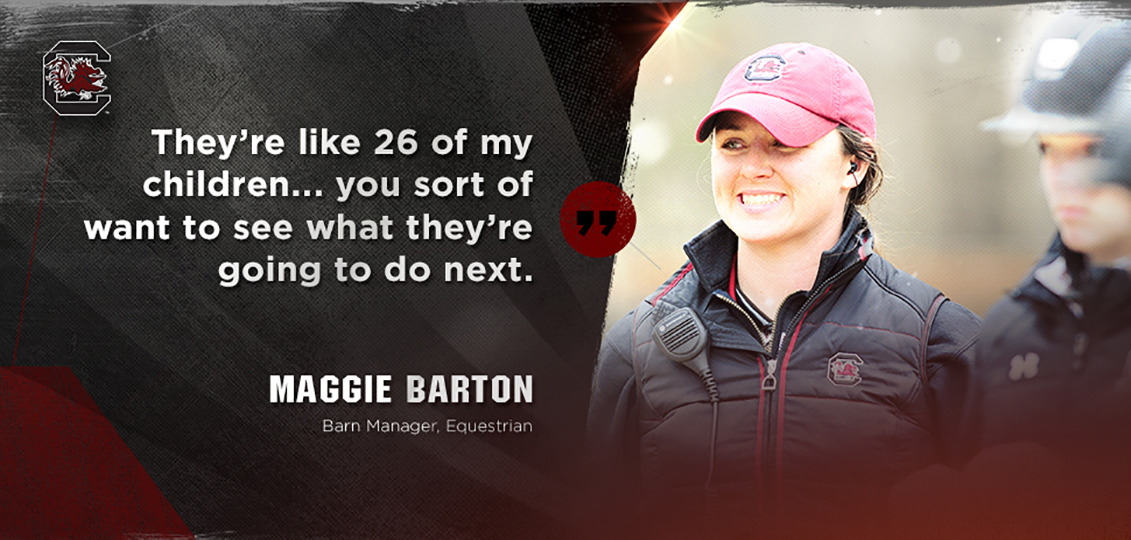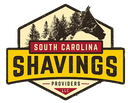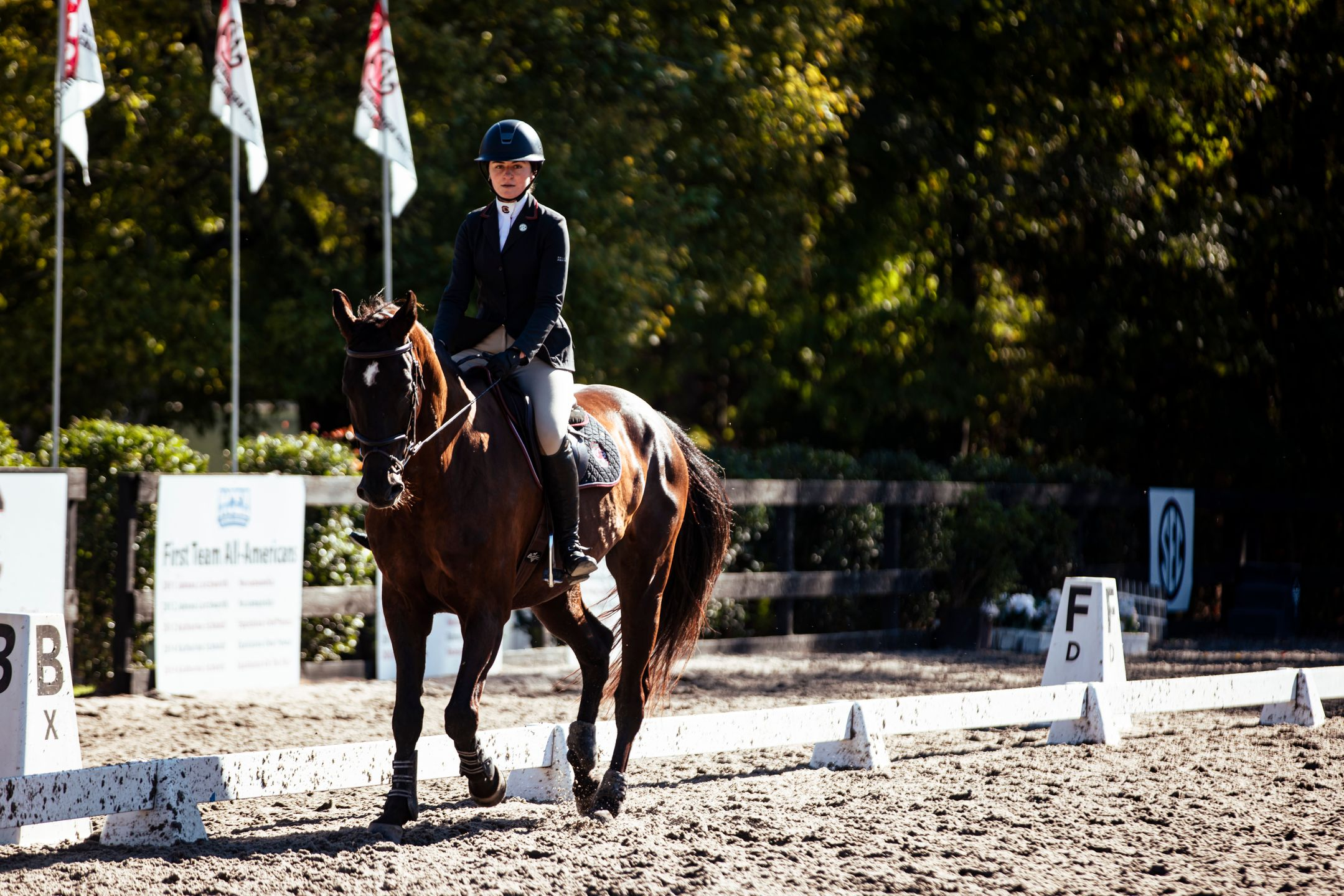
Barton Wears Many Hats as Equestrian Barn Manager
Aug. 9, 2017

Maggie Barton wears a lot of hats. In her role as the South Carolina Equestrian team’s barn manager, Barton is responsible for overseeing the day-to-day operations at One Wood Farm. She manages the facility, supervises the care of more than two dozen horses, and manages the twelve part-time staffers at the barn.
“Every day is not the same,” Barton said. “I love being outside and getting to do what I love to do every day, such as seeing the horses when they nicker and play. They do funny things, and I love to watch how they interact with the girls. It’s fun being part of one big family.
“The horses do have a mind of their own. I always say they’re like big puppies. They’re like 1,200 pound dogs. Some of them can be very playful, and others are very docile. Others can be the like the little child that wants attention all the time. So you just have to go with it.”
“She has a very under-appreciated job,” said head coach Boo Major. “I don’t think anyone in this department, including myself, understands all the stuff that is involved in running that barn. She’s like the head coach of the horses. She has to make sure they stay healthy, that they’re getting the right nutrition, and that they’re fit and happy. Her biggest asset is that not a whole lot flaps her. She doesn’t get upset. It takes a lot of pressure off of me.”
The 30 year old Lewisville, N.C., native has been around horses for 23 years after beginning to ride at the age of seven, and participated in English hunter/jumper competitions through high school and college. After graduating from UNC-Greensboro in 2011, she spent three years at Deer Creek Farm in Awendaw, S.C., training horses and riders before signing on with the Gamecocks prior to the 2014-2015 season and saw the Gamecocks win the NCEA National Championship that year.
“That was really cool,” Barton said. “I didn’t know much about the collegiate side of horses after coming in from what I call the private side of the horse world. Just having that team aspect is a lot of fun.”
Among her many duties, Barton schedules the veterinarian and farrier (individual who puts horseshoes on the horses) when needed, and taking care of 26 horses has many challenges.
“I try to keep them sound and sane,” Barton laughed. “They have all had careers as jumpers and reiners and in horsemanship. A lot of time we can transition the reiners over to the horsemanship, but you can’t do it the other way around. Coming from a career into this program is rigorous, so keeping them healthy and happy is a challenge sometimes, especially when we get to the second half of the season. They get older, so you have to keep their joints and everything else working so they’re up to par.”
She’s like the head coach of the horses.
Head Coach Boo Major
Having a level of trust with student-athletes in any sport is critical for staff, and the same holds true with the horses, who all know Barton pretty well.
“It’s probably because I feed them, and they get used to a certain tone of voice and schedule,” Barton said. “They’re very in to their set schedule. I just think the relationship we can have with horses is so cool. They do recognize you, whether it’s by voice or some other little cue such as whistling. They’re such big animals that have so much control, and they don’t even realize it sometimes.”
Just as a strength coach prepares a student-athlete for competition, to a certain extent, it’s Barton’s job to make sure the horses are in proper shape heading into the season as well.
“After summer break, they’ll have some time off when the students aren’t here,” Barton said. “Then we’ll get them back to a moderate level of fitness. Thanks goodness for our walker. I don’t have time to ride 26 horses in one day. It’s just like people or a track and field person. They have to run to keep in shape. It’s the same for horses. They need that level of endurance and strength.”
Communication about the horses with the coaches and the student-athletes can be critical in performance as well as safety.
“It so important because of just little things that can happen,” Barton said. “They [horses] can pull a horseshoe off, so then we have to take that horse out for a day. That can change riding schedules and practice times. Sometimes horses play too much with their buddies and they get injured.
“Thankfully the only horse that’s ever kicked me was a week old foal. You learn to read them to try to figure out what’s going to happen. Sometimes you don’t know.”
“There is a lot of communication,” Major added. “The student-athletes communicate a lot with her about the horses when one of them is not acting like it normally does. She may also come to us and tell us that a horse was grumpy today, so you may want to watch him when you’re riding him. It’s a constant communication about what the horses are feeling and thinking.”
It’s not uncommon for Barton to have to step in and assist with any troubles the horses may be giving the riders.
“It depends on the fight,” Barton laughed. “Sometimes a horse doesn’t want to ‘play’ today. You either want to push their (horses) buttons or you have to meet them in the middle. The student-athletes are great. It’s like one big family. I always ask them how their ride was and if their horse was good.”
While she enjoys getting to know the student-athletes each year and watching them compete, Barton also develops a special relationship with the horses.
“We have one horse at the farm, Leon, who probably has one of the bigger personalities,” Barton said. “He will just sit in his stall and play in his water bucket, and flap his lips together. It’s the darndest thing. We all just laugh at him because he does it every day.
“They’re like 26 of my children, so I don’t really have a favorite. I probably like the more mischievous ones because they’re so funny, and you sort of want to see what they’re going to do next.”
And yes, she talks to the horses, even if it’s not a typical motivational speech that a coach would offer.
“Absolutely,” Barton said. “It’s funny, you might randomly ask a question, and they’ll shake their head ‘yes.’ It’s always funny when they do. We have a good relationship.”













